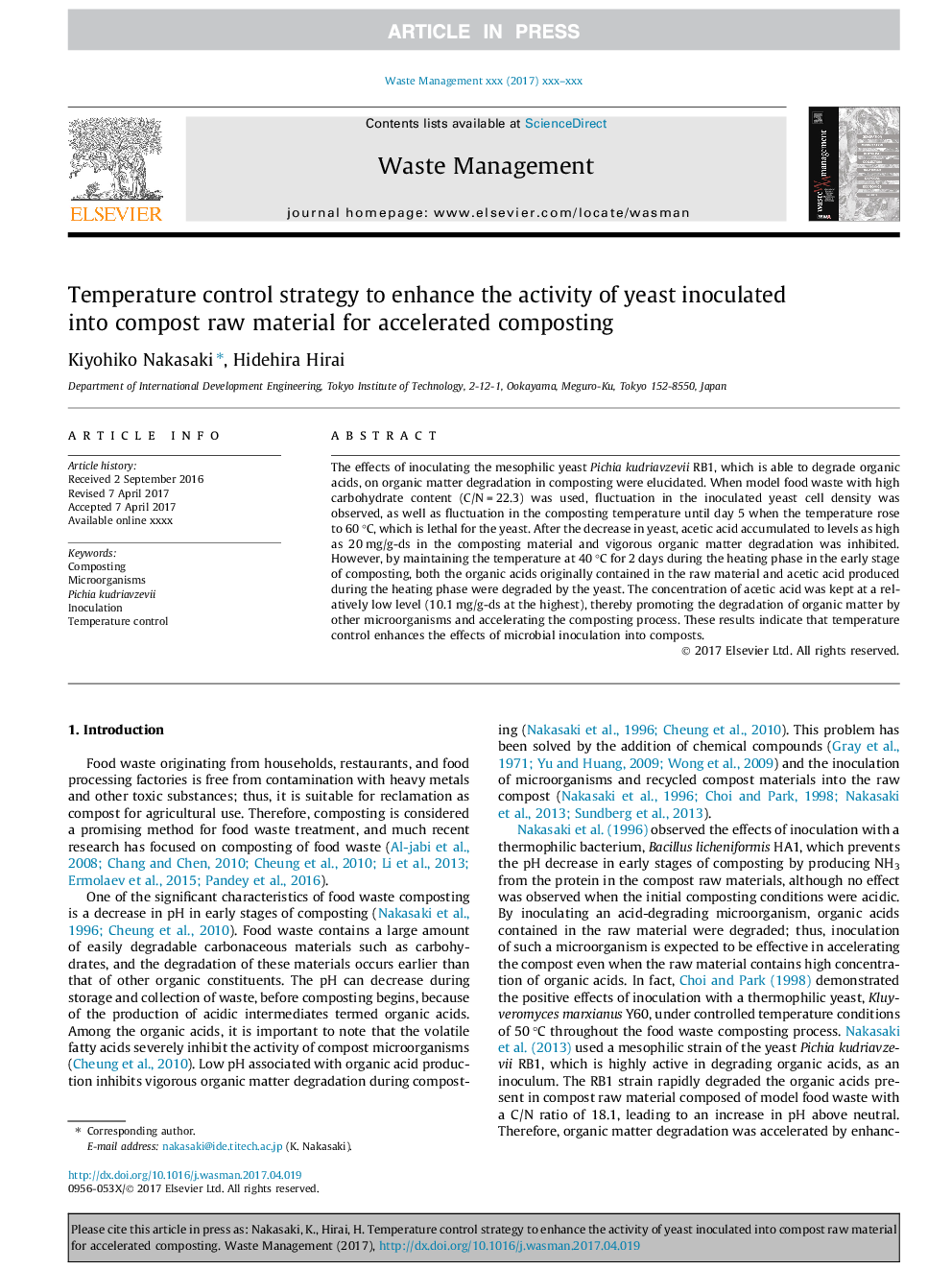| Article ID | Journal | Published Year | Pages | File Type |
|---|---|---|---|---|
| 5757126 | Waste Management | 2017 | 8 Pages |
Abstract
The effects of inoculating the mesophilic yeast Pichia kudriavzevii RB1, which is able to degrade organic acids, on organic matter degradation in composting were elucidated. When model food waste with high carbohydrate content (C/N = 22.3) was used, fluctuation in the inoculated yeast cell density was observed, as well as fluctuation in the composting temperature until day 5 when the temperature rose to 60 °C, which is lethal for the yeast. After the decrease in yeast, acetic acid accumulated to levels as high as 20 mg/g-ds in the composting material and vigorous organic matter degradation was inhibited. However, by maintaining the temperature at 40 °C for 2 days during the heating phase in the early stage of composting, both the organic acids originally contained in the raw material and acetic acid produced during the heating phase were degraded by the yeast. The concentration of acetic acid was kept at a relatively low level (10.1 mg/g-ds at the highest), thereby promoting the degradation of organic matter by other microorganisms and accelerating the composting process. These results indicate that temperature control enhances the effects of microbial inoculation into composts.
Related Topics
Physical Sciences and Engineering
Earth and Planetary Sciences
Geotechnical Engineering and Engineering Geology
Authors
Kiyohiko Nakasaki, Hidehira Hirai,
